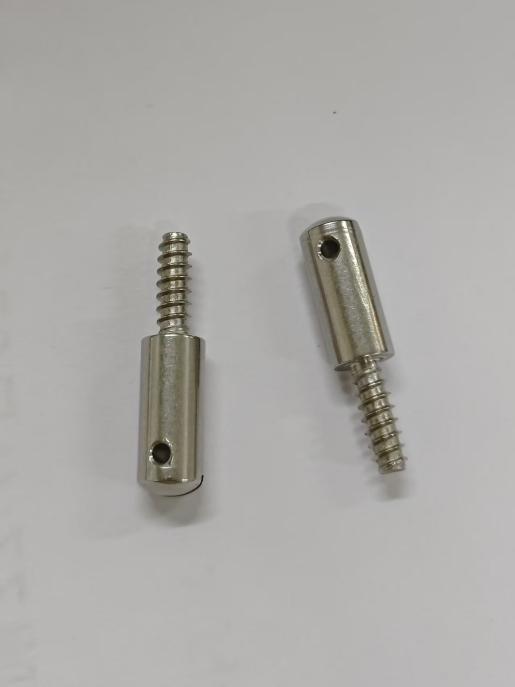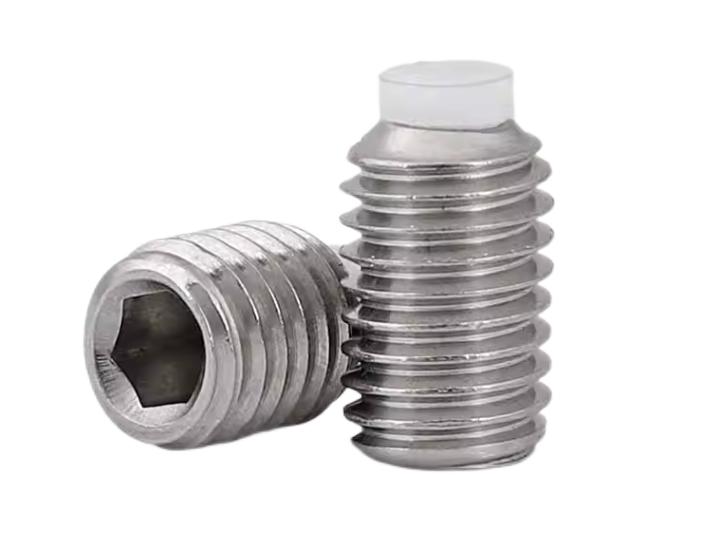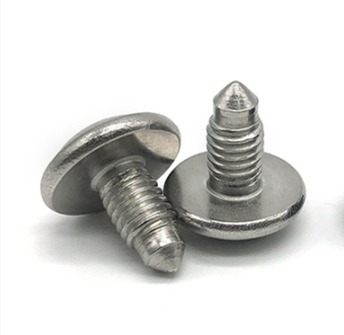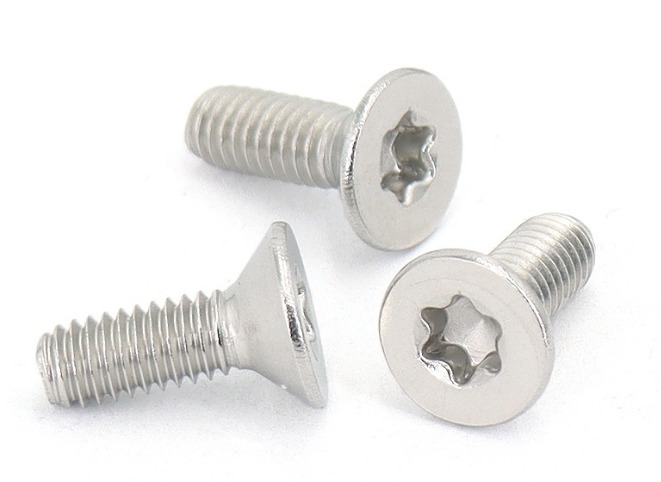What are Different Types of Torx Screws: Choosing the Right One for Your Application
Table of Contents
Torx screws have become one of the most popular screw types in various industries due to their superior performance in high-torque applications. Understanding the different types of Torx screws is crucial for selecting the right one for your application.

What are Torx Screws
Torx screws are a type of fastener that features a unique six-pointed star-shaped drive, designed to provide better torque transfer and reduce cam-out (slipping of the tool). This design allows for a more secure grip between the screw and the tool, making Torx screws ideal for high-torque applications. They are commonly used in industries such as automotive, electronics, and machinery. Torx screws come in various types, including standard, tamper-resistant, external designs, etc, each suited for different needs and levels of security.

Different Types of Torx Screws
1. Standard Torx Screws
Standard Torx screws feature a six-pointed star-shaped head and are the most commonly used variety of Torx screws. They are designed for general-purpose applications and come in sizes ranging from T1 to T100, with each size representing the dimensions of the star pattern.

- Applications: Electronics, automotive assemblies, machinery, and household appliances.
- Benefits: High torque resistance, ease of use, and reduced risk of tool slippage.
2. Torx Plus Screws
Torx Plus screws are an upgraded version of the standard Torx screw. They have a slightly modified design, with the points of the star being more rounded. This modification provides more contact area between the screw and the tool, enhancing torque transfer and improving the longevity of both the screws and tools.
- Applications: Automotive, aerospace, and other industries where high torque is required.
- Benefits: Increased torque capacity and tool longevity due to improved engagement.
3. Security Torx Screws
Security Torx screws, also known as tamper-resistant Torx screws, have a pin in the center of the star-shaped drive. This pin prevents the use of standard Torx drivers and requires specialized security bits. These screws are often used in situations where tamper resistance is critical, offering protection against unauthorized access.
- Applications: Public infrastructure, electronics, appliances, and security-sensitive applications.
- Benefits: Prevents tampering and unauthorized disassembly.
4. External Torx Screws
External Torx screws are designed with a star pattern on the outside of the screw head. They require external Torx drivers or wrenches for fastening. This design is commonly used in automotive and heavy-duty applications where high torque and reliability are crucial.
- Applications: Automotive engine parts, transmissions, and machinery.
- Benefits: Increased strength and stability, ideal for high-torque situations.
5. Torx Tamper-Proof Screws
Torx tamper-proof screws are a more advanced form of security Torx screws. These screws have additional features designed to make them even more difficult to tamper with. The star-shaped head has a unique pattern that requires specially designed tools for removal, ensuring maximum security.
Applications: High-security areas such as public facilities, electronic devices, and sensitive installations.
Benefits: Maximum security against tampering and unauthorized removal.
6. Button Head Torx Screws
Button head Torx screws have a rounded, smooth, and low-profile head that gives them a clean and sleek appearance. They are often used in applications where a low-profile, aesthetically pleasing finish is desired, without sacrificing the performance of a standard Torx screw.

Applications: Electronics, appliances, and automotive interior parts.
Benefits: Aesthetically pleasing, reduced risk of injury, and secure fastening.
7. Pan Head Torx Screws
Pan head Torx screws have a broad, flat head with slightly rounded edges. This design provides more surface area for the tool to grip and is suitable for applications where a larger contact area is needed for the screw driver. Pan head screws are ideal for ensuring a secure, flush fit.
- Applications: Metalworking, electronics, and construction projects.
- Benefits: Larger surface area for better grip, reducing the risk of slippage.

8. Flat Head Torx Screws
Flat head Torx screws have a countersunk design, allowing them to sit flush with the surface of the material they are fastened to. This design is useful in applications where a smooth, clean finish is required, as the screw does not protrude from the surface.
- Applications: Furniture assembly, cabinetry, and structural projects.
- Benefits: Flush fit for a neat, polished appearance.

9. Metric Torx Screws
Metric Torx screws are designed to meet international metric standards. They are identical to standard Torx screws in design but feature metric thread sizes. Metric Torx screws are commonly used in global manufacturing, where metric sizing is required for compatibility.
- Applications: International machinery assembly, global construction, and electronics.
- Benefits: Standardized for use in international applications.

Key Factors to Consider for Choosing the Right Type of Torx Screws
This chart helps to identify the essential factors to consider when choosing the right type of Torx screw for a specific task or application.
| Key Factor | Description | Impact on Choice |
| Torque Requirements | The amount of force needed to drive the screw without slippage or failure. | Higher torque applications require Torx Plus or External Torx screws for better performance. |
| Security Needs | The necessity to prevent tampering or unauthorized access. | Security Torx or Tamper-Proof Torx screws are ideal for security-sensitive areas. |
| Aesthetic Considerations | The appearance of the screw head and its flushness with the surface. | Button head and flat head Torx screws are ideal for applications requiring a sleek, flush finish. |
| Surface Type & Material | The material the screw will fasten and the surface it will go into (e.g., metal, wood, plastic). | Pan head and flat head screws work well for metal or wood, while button heads are better for sensitive materials like plastics. |
| Environment & Usage | The conditions in which the screw will be used (e.g., indoor vs. outdoor, exposure to elements). | External Torx screws are used in harsh environments like automotive or machinery. |
| Thread Size | The required thread size based on the application’s specification. | Metric Torx screws are used for international or metric-standard applications. |
| Size & Compatibility | The screw size needed for the application, ensuring compatibility with existing components. | Ensure the correct size (T1 to T100) is selected for the intended task. |
| Tool Availability | The type of tools available to drive the screws. | Security Torx and tamper-proof screws require specialized tools, limiting accessibility. |
| Durability & Wear | The wear-and-tear rate of the screws and tools, especially in high-use or heavy-duty applications. | Torx Plus and External Torx screws offer greater durability and longer tool life. |

Overall, whether you need a standard Torx screw for general use, a tamper-resistant Torx screw for security, or a specialized head for aesthetics or torque resistance, there’s a Torx screw to meet your needs. Understanding the differences between these type will help you choose the right Torx screw for your project, ensuring durability, performance and security in every application.








